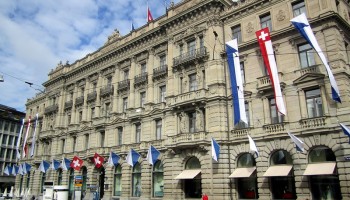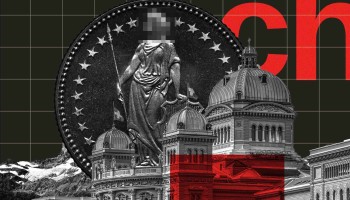Switzerland’s Federal Council, its government’s executive body, received a motion to debate the current legislation, with the goal to “guarantee freedom of the press in matters relating to the financial centre.”
Press freedom does not exist under the country’s Banking Act, originally put into force back in March 1935. As it currently stands, anyone who “discloses information about bank customers to other people” can be punished with up to three years in prison.
This applies even to journalists who expose criminal behaviour or other wrongdoings of urgent public interest linked to Switzerland’s finance sector. As a result, the country has long faced criticism for its barriers in holding to account criminals and the corrupt who have laundered their riches through Swiss banks.
But upon publication of Suisse Secrets this past February, OCCRP and its partners revealed that the bank Credit Suisse had knowingly accepted the business of corrupt politicians, criminals, spies, and dictators, and granted safe haven for no less than US$8 billion of their ill-gotten gains.
No Swiss reporters or publications, however, could participate in the investigation, lest they faced the wrath of the country’s banking titans, not to mention the very real prospect of prosecution.
“Switzerland simply does not respect European legal standards on freedom of expression and freedom of the press,” said the General Secretary of the European Federation of Journalists, Ricardo Gutiérrez.
“It favours the particular interest of bankers over the general interest. The necessary public debate is confiscated,” he said, adding that the case law of the European Court of Human Rights is not applied in Switzerland. “This practice is worthy of the worst authoritarian states. It must be stopped.”
Maíra Martini, an anti-money laundering expert at Transparency International, further commented that “the Suisse Secrets investigations prove once again that banks cannot be trusted to police themselves” and that “waiting every six months for the next drop of incriminating papers is not effective practice.”
Still, the investigation has garnered the desired response and Switzerland's leaders have taken notice. The country’s Green Party said that parliament is not doing enough to prevent financial crime and added that “Switzerland must no longer be the place where autocrats, dictators and criminals from poorer countries hide their money.”
But now, should the government vote to amend the Banking Act, the country’s authorities—financial or otherwise—will not be able to impede the freedom of the press with threats of legal action “when the work of the press is carried out sincerity,” according to the motion.






